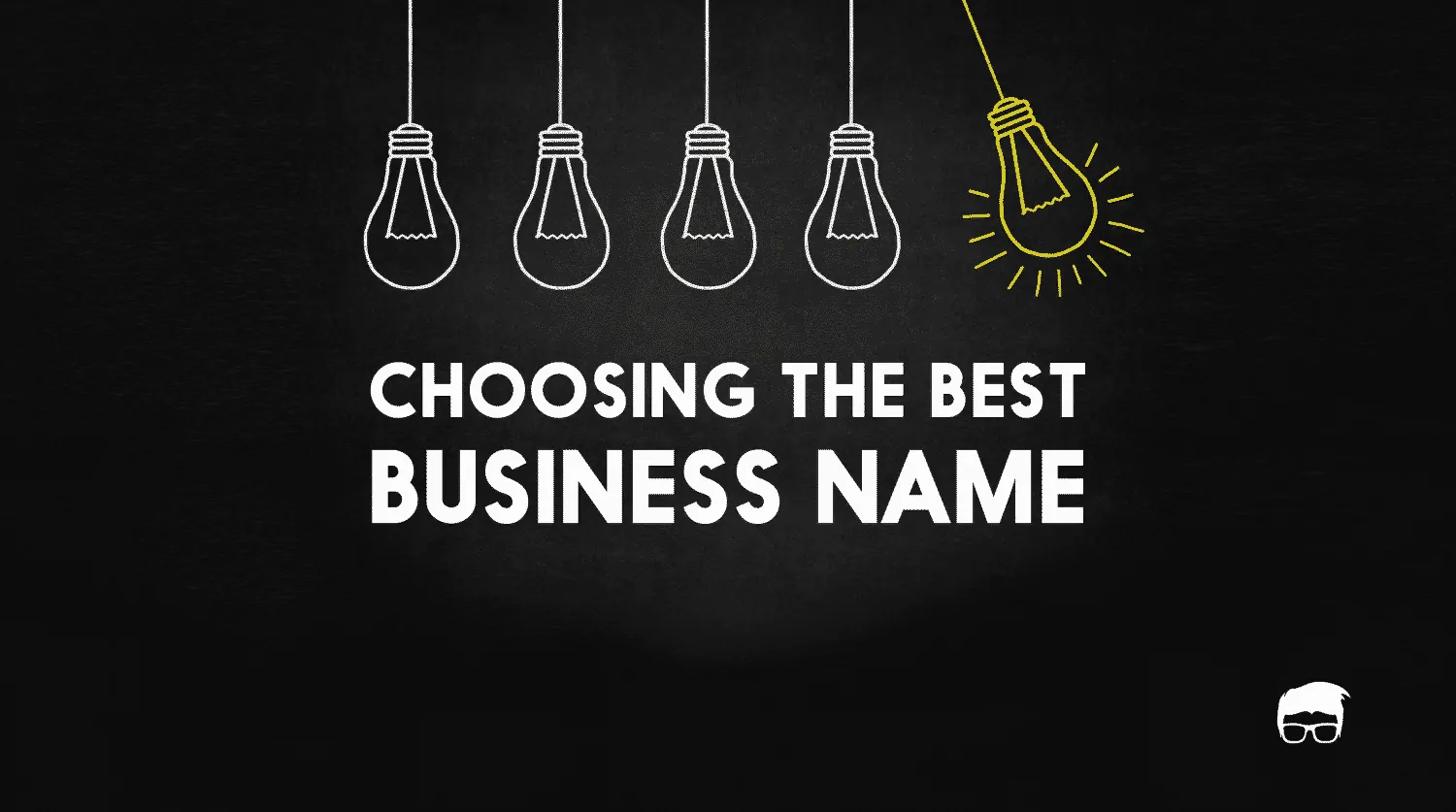So, you are a graduate, a post-graduate, or a college student who wants to take the less-travelled path and carve out your distinct professional trajectory by starting your own business after college.
But even though starting your own business does seem enticing, it can also have drawbacks for the unwary.
So, here’s a set of questions that you need to ask yourself before starting a business after college that might not seem important at the moment but can have a huge impact in the near future.
Is now the right time to start a business?
The first thing that you need to ensure is that you’re not starting at an inopportune time because if you do so, your idea, however brilliant it may be, would never take off. Therefore, research, analyse, take your time and make sure that you address the present demand. For instance, take the COVID-19 pandemic. The types of businesses that are prospering although, in a pandemic, are like food delivery, online tutoring, sales over the internet, specialised services of accountants and communication technologists, show a clear pattern. They all illustrate the importance of being able to “read the room” and determine what potential customers require.
See, since you’re a college graduate, you’ll be starting from scratch. But, this lack of expertise can be advantageous as
- You’ll have more time to devote.
- You’ll be less likely to carry any baggage with you from prior jobs. Thus, you’ll be more open to new ideas and methods of working.
However, mind you, it can affect your studies, and you might have to sacrifice exploring other opportunities (social and professional). Sometimes, you might not be taken seriously by investors due to your lack of experience.
Therefore, weigh the pros and cons and decide accordingly.
Are you passionate about this business?
Remember, before making any decision hastily, you must figure out whether you’re truly passionate about the business or is it just a hobby. Many times, people confuse a hobby with a passion. For instance, just because you enjoy reading novels does not imply that you should become a writer. What if you get ‘bored of’ your hobby? What if you become interested in something else?
So, do this small exercise where you visualise yourself working in that immersive environment which you’ve chosen for yourself. Are you getting bored of it? Do any other alternatives tempt you?
You’ll know you’re passionate about the particular field of employment if you can comfortably say no to other fascinating alternatives and are willing to put in a lot of effort and time.
Why do you want to start a business?
You could have easily applied for a job in your field and might have gotten placed somewhere. So, why did you take this big step? What’s the intention behind starting your own business? Do you want to follow your passion? Or, do you want to be financially independent? Or, do you want to have the freedom to live a more flexible lifestyle? Are you afraid of being fired or laid off if you work for someone else? Is working for someone else’s benefit a trigger for you? What is it?
I know, sometimes it might seem very hard to resist the temptation to get right into establishing your own business after you’ve had the initial spark of an idea, but long-term success takes extensive research and planning. So, give yourself plenty of time to comprehend the purpose that’s driving you to make this big decision as it could have repercussions later.
Do you have an idea or concept for the business?
Before you go in with both feet, you must have a comprehensive business idea.
It doesn’t have to be something unimaginable. You just have to take into account how your idea meets the current demand and solves a problem. For this, you need to do extensive research.
Because it’s much easier to get a foothold in an established market than it is to start from scratch, it’s okay if you take up an existing idea, evaluate it, uncover flaws in it, or just improve it. Take Uber, for example, Uber didn’t originate the concept of ride-sharing (taxis have existed since 1897), but it delivers the service in a new, unique way.
Have you designed a business plan yet?
After you’re finished researching your business idea, the next step is to create a business plan. It would be best if you created a business plan that encapsulates every aspect of your business, thus, serving as your business’s primary road map. So, write down briefly and explain all the costs, choices for advertising, everything you need to start, decide the prices of your goods and services, anticipated income, and perform a break-even analysis.
In short, create such a business plan that brings all your operational plans, strategy, and tactics together under one roof and gives you valuable insight into your venture’s potential strengths and limitations.
Here’s a guide that will help you to write your business plan.
Do you have the skills required to get started?
By now, you must have realised that you’ll have to wear several hats, especially in the early stages. For this, you must possess both hard skills as well as soft skills. You must have:
- Effective Communication Skills: You must have the ability to communicate with others as well as demonstrate sympathy toward your customers. So, if you’re someone with not-so-great communication skills, then you need to up your game. For instance: you can plan responses to some of the most often asked questions about your business and then test your answers on friends, and family members with various levels of expertise about your business and sector. Also, here’s a list of courses that will help you enhance your communication skills.
- Financial Knowledge: While you don’t have to be a financial planner to start a business, it helps to have a basic understanding of finances and how to handle your money well. Here’s a list of courses that will help you hone your financial skills.
- Tech-savviness: For today’s business, you should have a firm grasp of the latest technologies. So, invest extra time to learn about new technology. Also, learn to use internet marketing as much as possible and remain up to date with market changes on social media.
- Marketing and sales strategy: It doesn’t matter if you run a corner store or Pinterest; if you want to start a business, you need to be good at selling, and you must know how to bring customers and then retain those customers.
Overall, to succeed in today’s marketplace, you must be able to make sound decisions under pressure. Still, if you don’t even know where to begin, and other commitments are weighing you down then you need to construct a team with different skills.
Do you require additional skills?
If you lack business skills, then you can develop these skills by:
- Researching: Firstly, determine your previously existing skills and talents that can be improved. Regular business research and study can help you to maintain your abilities and keep you aware of current and emerging trends.
- Taking the help of a mentor: An experienced mentor can give you the advice necessary for your professional development.
- Reading business books: You can study a number of useful business books to enhance your knowledge. One wonderful strategy to uncover valuable business books worth your time is to find books that students in business schools currently read.
- Taking a course or workshop for business skills: This is an excellent technique to strengthen your knowledge and skills. Many courses may be found online, and some are even free, so you can fit in your schedule conveniently and affordably.
Have you analysed the market you want to cater?
You must determine if people need your product or service by thoroughly evaluating the market before entering it. You can start by comparing costs, service quality, product range (if it’s a product company). Then, you must gauge the current demand and supply in the markets you’ve selected. Also, don’t forget to list the industry’s challenges and work on their solutions.
The next step is to decide on the type of business. See, focusing on a certain industry will assist you in expanding in this sector, and you will be able to branch out to new sectors after your business is growing. So, decide whether you want to enter the service sector, merchandising industry, or a hybrid industry. Once you have analysed the market and selected the industry to which you will cater, you can begin conceptualising your product line or the services you will provide.
What is your customer’s persona, and how can your product be relevant to their lives?
Now, you must determine: Who are you going to offer your services or products to? Who needs them? What are your customers’ choices today? How can your product benefit them?
In order to find answers to these questions, research extensively about the demographic information on age, likes and preferences, the economic trends as it will give you a clear picture of your target audience. Read about other entrepreneurs in similar sectors’ in blogs, community forums, and Reddit postings to see what they know.
Have you validated your business idea?
Go out and have a chat with your potential customers so that you can obtain several views. In fact, you can develop a prototype (a minimally feasible service or product) and try to sell through a tiny publicity campaign. It will help you examine the demand. Ensure to make notes of the comments of your customers. It will help you determine whether your product/service is actually solving their problem or not. Finally, after you’re done learning about your target audience, make changes to your pitch.
However, reach out only to your target audience and not to your friends, families, and coworkers, as they might sugarcoat things for you.
How are you different from your competitors?
Take a moment to understand what is going to make someone purchase your product over your competitors? What is your “secret recipe”? See, it’s that “secret recipe” that will set your business apart from the competition. It might originate from various sources, including where the product is manufactured, its distinctive quality, how it’s made, competitive price, or a philanthropic component.
However, don’t get into the rush of differentiating yourself that will make you lose the foresight of what you actually want to deliver. Remember the customer is the king. Hence, provide a good customer experience, address the customer pain points, and show that you care about the environment and social issues.
For instance, there are many soaps out there in the market. But, it’s Dove’s genuine beauty campaign that promotes self-esteem and body confidence in women and girls that sets the company apart.
Have you decided on the location of your work or do you want to work from home?
Even though your first location is less crucial than having a solid company plan and a well-thought-out strategy. Yet, do consider whether you want to work from your own home? Or, do you want to rent out a place for your business?
It’s not like you can’t establish a successful business from your house. Apple, Google, and Ford all had their start in the basements of people’s houses. Why? Because it saves additional costs such as costs of transportation. But again, the location of your business has an impact on your revenue, expenditures, and even legality. Even though it can be pricey, businesses located in high-traffic locations tend to be more successful than those hidden away in industrial parks or quiet malls.
As a result, before making any decisions, honestly analyse your needs.
Is there a need to hire employees?
On the one hand, your instinct might tell you to be a lone warrior as you might not have the resources to support another person. On the other hand, you might feel that you don’t possess all the skills or knowledge required; hence, you should just hire someone. See, it’s your choice whether you want to start your business alone or with a partner or hire an employee and expand as a team over the years.
So, take your own time to decide if or not you require support and guidance. Like, if you’re turning down work, you have a new cash stream, or you’re lagging, then it’s time that you hire an employee.
Should you include your friends as your team members?
Now, if you’ve decided to hire employees, should you hire your friends or family members? Many people are wary of using the services of a friend or family member because they are afraid of being taken advantage of. Because borders may blur quickly, many people are concerned about combining their personal and work life. The possible benefits of hiring them are:
- When you’re starting and growing a business, your friends and family are the ones that will give support and encouragement.
- They are the ones concerned about your well-being.
However, it can be tough to fire them, and they can bring personal problems to work.
Sometimes, they may believe that they have special privileges. Lastly, if things go south, personal or family relations could potentially be damaged
Thus, it’s critical that you create clear limits and duties. You must be confident in your ability to assume an authoritative role, delegate duties, provide constructive criticism, and even listen to your employees’ recommendations and criticisms about your company and your leadership.
What funds do you currently have, and what do you need to start?
Even for the simplest home-based business, there are several initial costs, like establishing a company name, getting a business phone line, and printing business cards. Therefore, you have to figure out how much money you’d need in the initial stages of your business. At the very least, you should prepare a sales estimate, an expense budget, and a cash flow projection. These three predictions will assist you in determining what it will take to get your business off the ground and maintain it running after you start receiving customers.
For instance, when you project how much money you will need, take the total and increase it by at least 20%.
If you realise you need more funds to get started, you can secure funding through personal investment, angel investors, or a business line of credit. But, since you’re a recent grad, you may find it more difficult to secure funding from an investor or lender.
How much of your time and energy will it consume?
A successful business demands a lot of time and energy. So, make sure that you’re in a decent spot in your life where you don’t have too many obligations that will prevent you from giving the business 100%. Thus, set a workable and efficient timetable for your business if other commitments restrict your schedules. This will enable you to remain motivated and manage your business efficiently.
Are You Prepared for the Possibility of Failure?
See, planning for failure is more important than planning for success as you’ll face unforeseen difficulties and obstacles. So, ask yourself: Will you be able to pick yourself up if your business doesn’t work out? From the very beginning, you have to operate with a full understanding that the odds are against you. Even if your business begins out well, be ready with a plan B. However, don’t live in the crippling dread of failure all the time. Just focus on your goals without being distracted.
Do you have a clear-cut vision for your business?
In the short run, you can get through if you are resourceful and prepared, but you have to pivot at some point. A vision gives the business a great sense of where you might go. But, how do you define and share your vision with your customers? It is with a statement of vision. A vision statement outlines the desired mission of the organisation and expresses goals and hopes for the future. It should convey what your business plans to achieve in the future and how you intend to solve the problems you’re aiming to solve. Keep the vision statement short and simple.
Business After College: Bottom-Line?
All in all, these 18 questions will help you decide whether or not you’re ready to take the next step or not. Thus, ensure that you’re giving enough time to each question so that you can understand your business idea inside and out. So, be passionate about your business, have tenacity and self-belief and be brave and take the risk that might lead to your greatest success.
And, if you can’t, then you’re not ready for starting a business after college.
Go On, Tell Us What You Think!
Did we miss something? Come on! Tell us what you think of our article on the business after college in the comments section.
An avid reader and economics enthusiast who is always eager to learn. Prachi is an aspiring leader who believes in what she does. Besides reading , she is fond of baking , dancing and travelling.








